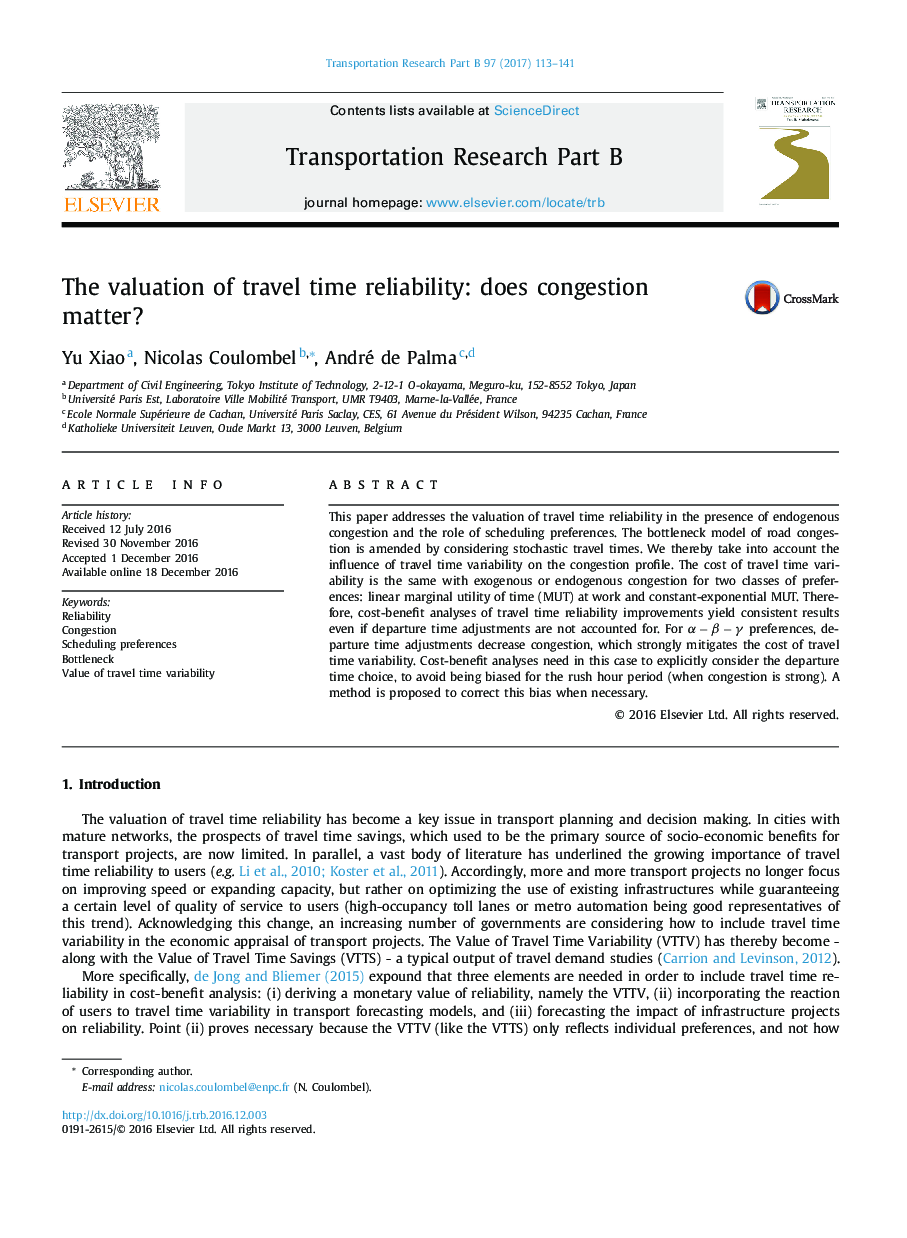| Article ID | Journal | Published Year | Pages | File Type |
|---|---|---|---|---|
| 5127079 | Transportation Research Part B: Methodological | 2017 | 29 Pages |
â¢We study the cost of travel time variability under endogenous (recurrent) congestion.â¢Reliability improvements entail departure time adjustments, which modify the congestion profile.â¢Depending on scheduling preferences, this may strongly mitigate reliability benefits.â¢This implies a bias in cost-benefit analysis when ignoring departure time adjustments for rush hour.â¢A method is proposed to correct this bias when necessary.
This paper addresses the valuation of travel time reliability in the presence of endogenous congestion and the role of scheduling preferences. The bottleneck model of road congestion is amended by considering stochastic travel times. We thereby take into account the influence of travel time variability on the congestion profile. The cost of travel time variability is the same with exogenous or endogenous congestion for two classes of preferences: linear marginal utility of time (MUT) at work and constant-exponential MUT. Therefore, cost-benefit analyses of travel time reliability improvements yield consistent results even if departure time adjustments are not accounted for. For αâβâγ preferences, departure time adjustments decrease congestion, which strongly mitigates the cost of travel time variability. Cost-benefit analyses need in this case to explicitly consider the departure time choice, to avoid being biased for the rush hour period (when congestion is strong). A method is proposed to correct this bias when necessary.
